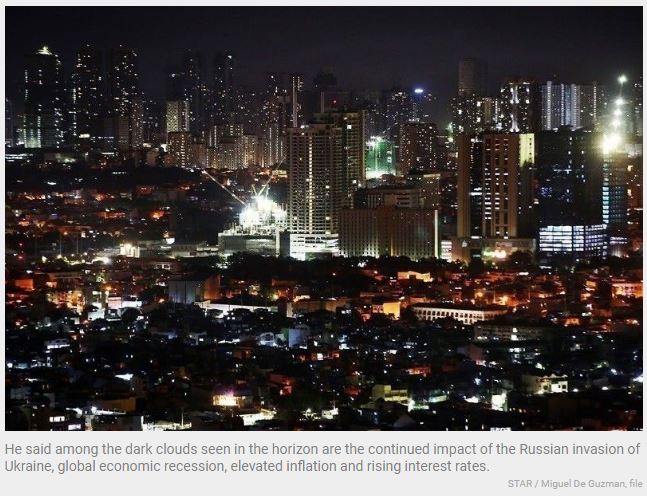Philippines: Economic growth may slow this year
MANILA, Philippines — The Philippine economy is expected to grow at a slower pace of six percent this year amid risks such as slower global growth, high inflation and rising interest rates. During a briefing by First Metro Investment Corp. (FMIC), University of Asia and Pacific (UA&P) economist Victor Abola said the economy is expected to grow by six percent from the projected 7.3 percent growth last year.
He said among the dark clouds seen in the horizon are the continued impact of the Russian invasion of Ukraine, global economic recession, elevated inflation and rising interest rates.
“This year, we continue to anticipate external headwinds – slower global growth, interest rates and inflation will remain elevated and volatility will persist – which will temper growth. In the face of all this, the economy will remain resilient and is expected to expand by six percent,” FMIC president Jose Patricio Dumlao said.
The six percent gross domestic product forecast for this year is at the lower end of the government’s six to seven percent growth target, while the projection for last year is within the government’s 6.5 to 7.5 percent growth goal.
From January to September 2022, the Philippine economy grew by 7.7 percent.
Abola expects growth to be supported by consumption and investments.
“On the investment side, there is going to be a strong recovery in infrastructure spending,” he said, noting the government’s push for public-private partnership projects.
He said food inflation is seen as the main risk to the outlook.
“If it gets persistent, farmers do not respond or there is rent-seeking in the form of your middlemen taking advantage of high prices, and planters or farmers are discouraged from actually planting more mostly because the gains do not reach them, I think that is an important risk,” he said.
As the food price increases are addressed, inflation is expected to ease.
After hitting a 14-year high of 8.1 percent in December last year, Abola expects inflation to ease to seven percent in January, and average seven percent in the first quarter.
For this year, he expects inflation to average 4.5 percent, slower than the 5.8 percent last year.
In terms of the peso exchange rate, he said this is expected to be within P57 to P59 this year.
Source: https://www.philstar.com/business/2023/01/13/2237174/economic-growth-may-slow-year


 English
English




